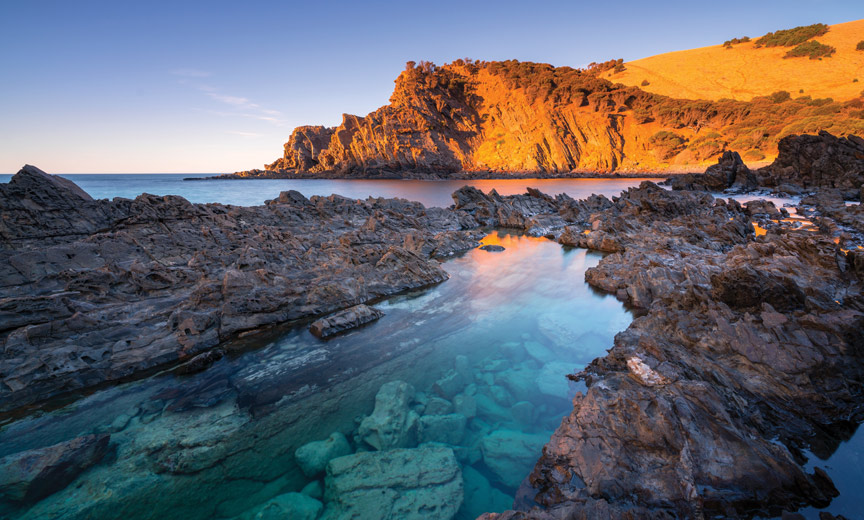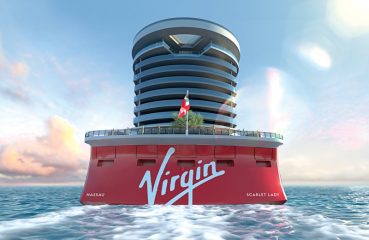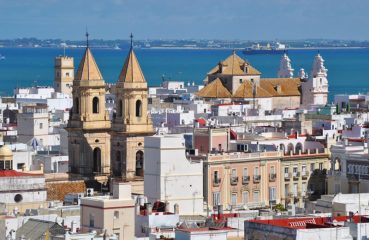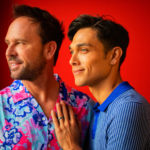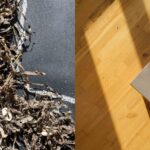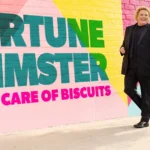The azure waters of Sydney Harbour. The rust colored monolith of Uluru rising out of the desert. The wave-beaten spires of the 12 Apostles along Victoria’s Great Ocean Road. Australia is not short on unforgettable landscapes. And chances are, if you’ve been, you’ve seen them already.
But what keeps me coming back to Oz time after time is the opportunity to discover new awe-inspiring and utterly unique places on every visit. For it’s in some of these less-traveled destinations where the “real” Australia can be found. Here are three spectacular settings to consider exploring on your next visit Down Under.
The Kimberley, Western Australia
Roughly the size of California, the Kimberley region in Australia’s remote northwest is home to just 40,000 people. However, this mystical place is anything but empty.
The Kimberley’s seasonal lakes and mangrove-lined tidal rivers teem with wildlife. Enormous jellyfish and stingrays float along with the currents. Scaly saltwater crocodiles emerge at intervals along the shore. The terrain is strewn with craggy rock formations, some of which date back a billion years, while the bottle-silhouetted boab trees that jut out here and there measure time’s passage in centuries — or even millennia.
I spent two weeks visiting this otherworldly land aboard True North (truenorth.com.au), a luxury yacht that plies the Kimberley’s 7,500-mile-long coastline from March through September every year.
In Talbot Bay, my fellow passengers and I climbed aboard tenders to shoot the tide-fueled rapids of the Horizontal Waterfalls, which David Attenborough called “Australia’s most unusual natural wonder.” Another morning, we moored near Montgomery Reef, a 155-square-mile marvel that emerges from the sea twice each day — towering 13 feet out of the water before submerging completely again at high tide. While navigating its narrow channels, True North’s nature guides pointed out giant sea turtles gliding beneath us, and kept watch for shy, manatee-like dugongs nibbling on the sea grass nearby.
Force of Nature
Aboard True North’s helicopter, we took scenic flights over Mitchell Falls, which dwindles to a mere trickle during the dry months, but roars into a four-tiered gusher fed by emerald-green ponds after the seasonal rains. Our chopper pilot also ferried us to Eagle Falls for an afternoon picnic. Between plates of barbecued lamb and ice-cold beers, we could swim under some of the smaller waterfalls for a “Kimberley shower” or peek over the edge for a glimpse of the freshwater crocodile who lived below.
The young Aussie crew led us on a hike up to an aquamarine swimming hole with floors of glimmering quartz stones. We floated there, watching rare butterflies flitting overhead.
I learned to fish for feisty barramundi and mangrove jack. I also managed to hook a mud crab and, yes, even a tawny nurse shark (which languidly swam away with my line). Another day, I took a chisel to native rock oysters embedded on the boulders of Winyalkin Island, harvesting a meal’s worth of mollusks the size of my hand.
Hidden Heaps
The crew walked us to cave systems where nomadic peoples left evidence of their existence in the form of “midden heaps” passed along with some of the oldest art on earth. These include colorful Wandjina rock paintings dating back some 5,000 years and feature spirit-like figures and wildlife including wallabies and turtles. Meanwhile, the elegant stick-like Gwion Gwion figures are thought to be as old as 50,000 years.
For a glimpse of the more recent past, we moored at Careening Bay to see the Mermaid Tree, a boab with a distinctive split trunk that was named after the HMC Mermaid. Aboard that ship, a dashing British naval officer named Philip Parker King surveyed this coast in 1820 and created maps that are still used today.
Farewell to Paradise
We spent our final afternoon luxuriating on the iridescent white sands of Silica Beach, which bubbled up like vintage champagne underfoot as we walked into the water. Afterwards, the able-bodied crew lashed five tenders together to create a waterborne cocktail party for a last spectacular sunset and sad but satisfied goodbyes.
Practicalities: True North’s Kimberley cruises leave from either Broome or Wyndham. Virgin Australia flies non-stop to Broome and Wyndham (Kununurra) from Perth. Qantas flies non-stop to Broome from Perth, Melbourne and Sydney, and to Wyndham from Perth and Broome.
Find LGBTQ-Friendly Resources[wpp range=”all” cat=’16259′ thumbnail_width=75 thumbnail_height=50 limit=4 stats_views=0]
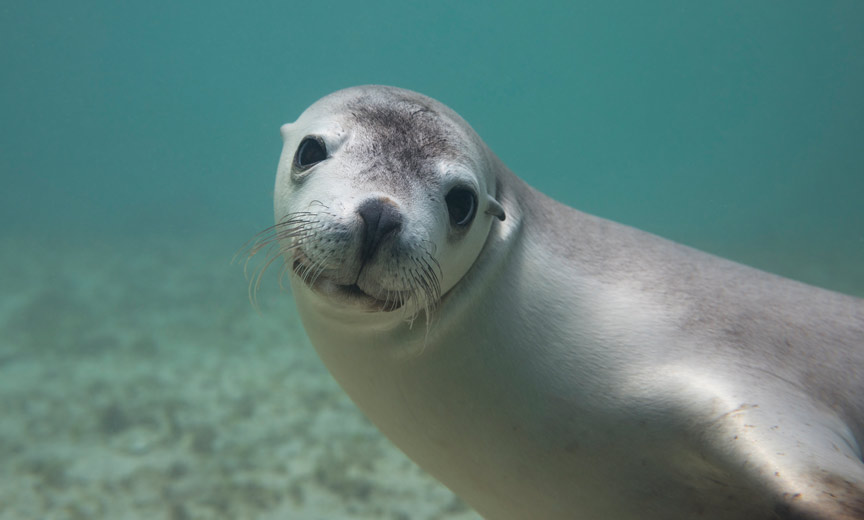
Sea Lion – South Australia
The Eyre Peninsula, South Australia
South Australia has always been just a little bit different from the rest of Australia. Unlike the original colonies on continent’s east coast, it was established as a free state rather than a convict settlement. Its capital, Adelaide, was thoughtfully laid out on a well-mannered grid drawn up by Colonel William Light in 1837 that still comprises the city’s core today. Many travelers also come here to visit South Australia’s world-class wine regions, including the Barossa and Clare Valleys, and the Instagram-worthy ochre topography of the Flinders in the north. However, some of South Australia’s most magnificent natural treasures are to be found along the Eyre Peninsula to the west.
The main town of Port Lincoln is the hub for a mix of maritime adventures, although you can also go wine tasting at boutique cellars like Peter Teakle Wines (peterteaklewines.com) or sample the local brews at Beer Garden Brewing (beergardenbrewing.com). My favorite landmark? The statue of explorer Matthew Flinders plotting his 1801-1803 circumnavigation of Australia — along with his trusty cat, Trim.
A Shark’s Tale
It seems that everyone in Australia has a shark story, and if you want one of your own, this is the place to come. I was reluctant to swim with the toothy terrors of the deep, but braver souls can swim with great whites off the nearby Neptune Islands. In fact, this is one of the only places in the country where people are allowed to cage dive with the fearsome pelagic predators. Catch a day tour year-round with Calypso Star Charters (sharkcagediving.com.au).
Instead, I opted for a more playful pastime: the chance to swim with sea lions, which the crew of Adventure Bay Charters (adventurebaycharters.com.au) described as the “puppies of the sea.” After our two-hour cruise to Boston Bay, the sea lions seemed as excited to see us as we were them. Dozens came bounding off the beach, swimming toward the boat, as if beckoning us to dive in.
I did, and what ensued was one of the most delightful, enchanting, and just plain fun hours of my life. Sea lions swam around me, twisting and flipping, mirroring my movements and waiting patiently as I periodically surfaced for air so we could resume our games. It was with a heavy heart that I finally reboarded the boat for the return journey.
I did not have long to sulk because there were adventures in store on land. A genial guide from Australian Wildlife Adventures (australianwildlifeadventures.com.au)
named Hassie was waiting to take us on an oyster-harvesting tour and tasting of briny bivalves with Pure Coffin Bay Oysters (coffinbayoysters.com.au). After a stop to observe koalas in the wild, we finished our day with a sunset hike on the sea cliffs of Lincoln National Park.
On Safari By Air
The following morning, the guides at Goin’ Off Safaris (goinoffsafaris.com.au) took me on a scenic helicopter flight over the coast. After, we spent an hour casting from the shore, during which I caught the Pacific salmon that we then grilled for our beach picnic lunch later that day.
Practicalities: Port Lincoln is a 50-minute flight west of Adelaide on either Rex or Qantas. Though you can book vacation homes in many of the peninsula’s small towns, the most upscale accommodations in town are at the Port Lincoln Hotel (portlincolnhotel.com.au).
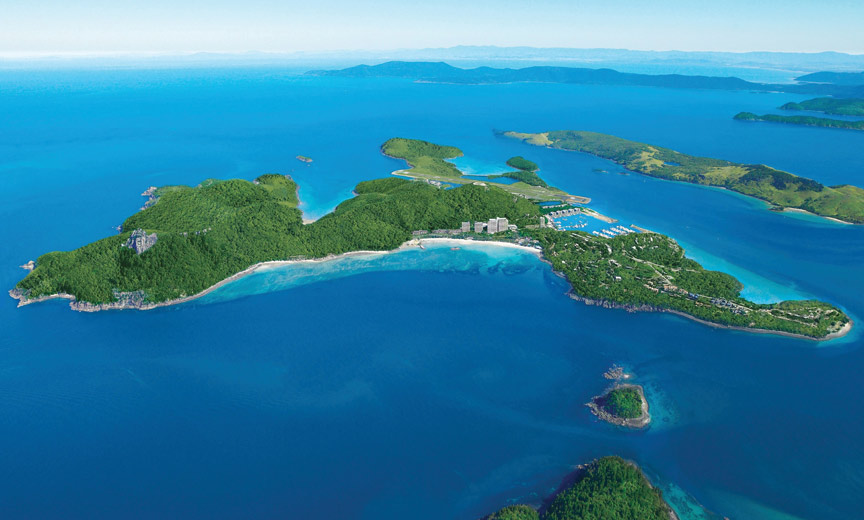
Hamilton Island Queensland Credit Tourism and Events Queensland
The Whitsundays, Queensland
The Great Barrier Reef may well be the most famous natural wonder in the world. But it is also perhaps the most misunderstood: The reef is actually a network comprised of a system of nearly 3,000 individual reefs and 900 islands, and is the only living organism on the planet that can be spotted from space.
In recent years, the Reef has been under constant threat from tropical cyclones wreaking devastation on its underwater ecosystems and warming ocean waters, stressing coral and other marine life (both the products of unprecedented climate change). It’s not all gloom and doom, though. New studies have found that parts of the reef and the animals that live there have bounced back more quickly than expected from bleaching and storm events, and eco-conscious tourism might just be the best way to protect the Reef for future generations. Do your part with an adventure up the Queensland coast.
Island Fever
ladyelliot.com.au) is a study in considered conservation (and one of the best spots on earth to scuba with manta rays). Up in the tropical north around Cairns and Port Douglas, visitors can split their time between day tours out to little-visited sections of the Reef, and trips to the Daintree Rainforest, thought to be the oldest rainforest in the world and containing plant species that predate the dinosaurs.However, for a truly Reef-centric retreat, I headed to Hamilton Island and the Whitsundays. The Whitsundays are an archipelago of 74 tropical islands just off the coast, about a 90-minute flight from Brisbane (or three hours from Sydney). Hamilton Island is already a hotbed of hotels and tourist activity, although you can book a sumptuous sequestered sojourn at qualia (qualia.com.au), a luxury lodge nestled into the island’s jungle-covered slopes.
Daydreaming
Otherwise your best bet may be one of two soon-to-reopen properties on nearby islands: the Intercontinental Hayman Island (hayman.com.au), or Daydream Island (daydreamisland.com). Daydream is about halfway between Hamilton Island and the mainland resort town of Airlie Beach. The 277-room resort there will reopen this year after an $86 million renovation, along with an expanded Living Reef outdoor aquarium containing over 100 marine species overseen by on-staff marine biologists.
Among other not-to-missed experiences in the area are a scenic flight over the recognizable Heart Reef with Air Whitsunday Seaplanes (airwhitsunday.com.au), and a charter sail to the four-mile-long Whitehaven Beach, which is routinely voted among the most beautiful on Earth. You can do so aboard a vintage yacht called Lady Enid (ladyenid.com.au).
Having recently taken up scuba, I spent a day diving with Explore Group (exploregroup.com.au), which operates kitted-out catamarans from Airlie and Hamilton Island. On our day out at Bait Reef, I dove with sea turtles and reef sharks, and marveled at massive underwater geological formations.
Come Fly With Me
Practicalities: You can fly to Hamilton Island non-stop from Brisbane, Melbourne and Sydney on either Qantas or Virgin Australia. Qantas now operates all its flights from Los Angeles to Brisbane – twice on Monday, Wednesday and Saturday, once on other days – exclusively with Boeing 787 Dreamliners. The jets feature the airline’s newest suite-style business class seats, as well as its latest premium economy cabins and updated economy seats, as well as serving menus created by celebrity chef Neil Perry.
Want Metrosource LGBTQ content notifications? Sign up for MetroEspresso.
Last modified: March 29, 2019

